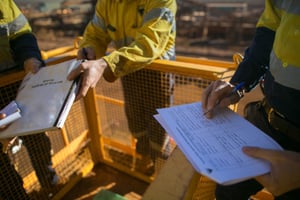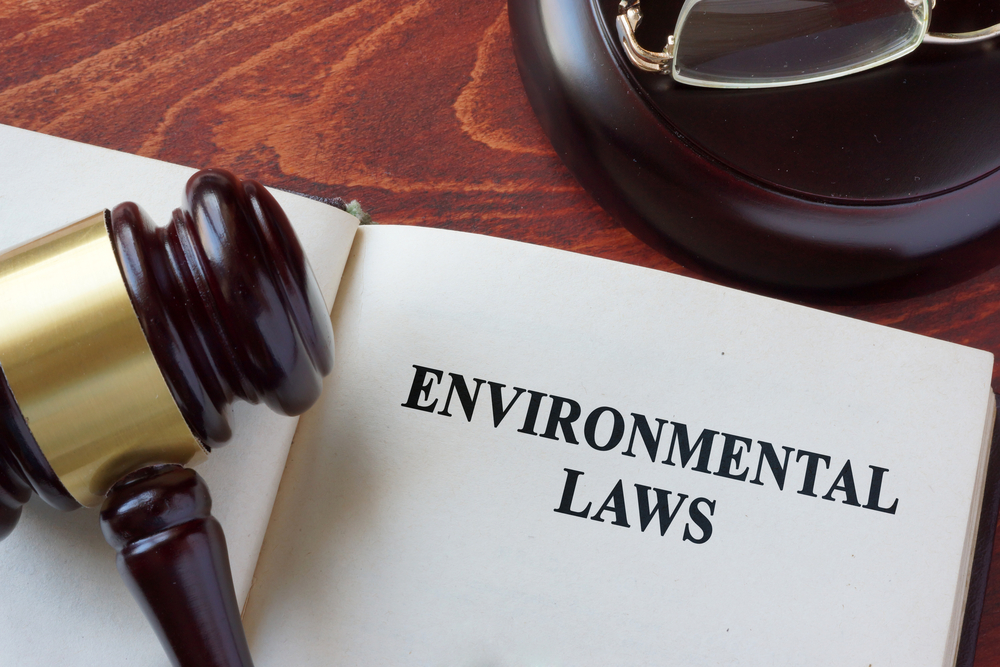The soon to be finalized United States-Mexico-Canada Agreement lays out a comprehensive chapter on environmental provisions, modernizing obligations to protect the environment in all areas related to trade. In particular, chapter 24 of the document states, “No party shall fail to effectively enforce its environmental laws through a sustained or recurring course of action or inaction in a manner affecting trade or investment between the” three countries partnered through the agreement.
Of course, the first step to meeting those provisions is to understand the environmental regulations in place today in Mexico and how they impact manufacturers looking to set up a factory in Mexico.
LGEEPA - The framework for environmental law in Mexico
The Mexican Constitution imposes on its states the obligation to guarantee all people a healthy environment. The specifics of achieving that are laid out under the General Law of Ecological Balance and Environmental Protection (LGEEPA), originally enacted in 1988 and subsequently updated regularly. Most recently, for example, the Senate of Mexico unanimously voted in 2019 for legislation that classifies light pollution as a form of environmental pollution.
 The federal law addresses a broad range of environmental matters, including water, air and ground pollution, resource conservation, and environmental protection enforcement. It also incorporates into law the standards to follow for technology and processes that help manufacturers track their emissions and guide appropriate waste disposal actions. Manufacturers must meet atmospheric air quality standards by staying below the permissible threshold for certain emissions, as set by the U.S. EPA’s National Ambient Air Quality Standards.
The federal law addresses a broad range of environmental matters, including water, air and ground pollution, resource conservation, and environmental protection enforcement. It also incorporates into law the standards to follow for technology and processes that help manufacturers track their emissions and guide appropriate waste disposal actions. Manufacturers must meet atmospheric air quality standards by staying below the permissible threshold for certain emissions, as set by the U.S. EPA’s National Ambient Air Quality Standards.
In addition to the broad environmental law, several subsequent regulations have been passed to focus on specific areas of potentially hazardous emissions. For instance, Mexico’s National Waters Law authorizes the National Water Commission (CAN) to manage national waters and regulate water pollution. Extraction of national waters, discharge of wastewater, and occupation of federal water zones all require authorization issued by the CNA.
The General Law for Prevention and Integral Handling of Waste encourages sustainable development through the reduction and management of hazardous and solid waste. The law identifies three categories of waste: hazardous waste, special management waste, and solid waste. Most notably, the law prohibits specific instances of generating, storing, transporting or disposing of hazardous waste without appropriate permits. While the storage of self-generated hazardous waste does not require a specific permit, the facility where the waste is stored must meet certain specifications.
Enforcement of Mexico's environmental regulations
There are offices in charge of enforcing environmental laws in Mexico at the federal, state, and local levels. At the national level, the Ministry of Environment and Natural Resources (SEMARNAT) lays out environmental policy and standards that are enforced by the Federal Attorney Office for Protection of Environment (PROFEPA).
PROFEPA is authorized to conduct inspections and surveillance visits to ensure compliance with environmental legislation. The agency will first send a written order letting a manufacturer know an inspection will take place at a specific facility, and what the auditors will be reviewing. For example, a review may focus on air quality or materials discharged in the water. If the inspection official finds an area of noncompliance, the findings set off a process for administrative sanctions, a process that can be appealed by the manufacturer.
It's important to know that many manufacturing sites will be subject to federal jurisdiction, regardless of the municipality in which they are located. In fact, all stationary sources of air pollution—such as factories — must obtain an operating license for emissions.
Environmental permits needed to manufacture in Mexico
Mexican environmental regulations also require that manufacturers obtain permits for certain potentially hazardous activities. Organizations that will emit potentially dangerous substances must obtain an Environmental Impact Authorization from SEMARNAT or a state environmental agency. This authorization can be obtained by completing the Single Environmental License (LAU), an authorization for the operation of fixed sources of potential pollution as regulated by federal authorities.
The LAU provides federal regulatory officials information on how the company will safeguard against expected environmental risks, emissions and hazardous waste, and wastewater effluent.
The LAU provides federal regulatory officials information that might include:
- The type and volume of hazardous waste output and a waste management plan.
- Any manufacturing processes that generate wastewater.
- The types of emissions the factory releases into the air.
 Organizations may be asked to provide documentation such as environmental impact studies, operating licenses, logs of hazardous waste generation, or manifests on the transport of hazardous waste. For the permit to remain valid, organizations must file an annual report with SEMARNAT. SEMARNAT operates an online Registry of Emissions and Transfer of Pollutants, granting the public access to information about organizations that release potentially hazardous substances into the environment.
Organizations may be asked to provide documentation such as environmental impact studies, operating licenses, logs of hazardous waste generation, or manifests on the transport of hazardous waste. For the permit to remain valid, organizations must file an annual report with SEMARNAT. SEMARNAT operates an online Registry of Emissions and Transfer of Pollutants, granting the public access to information about organizations that release potentially hazardous substances into the environment.
Some permits, such as state or local water, air, wastewater, or hazardous waste permits, may have expiration dates ranging anywhere from five to thirty years. By working with an expert in Mexico's environmental regulations, companies can ensure that their permits do not lapse.
How does USMCA impact Environmental Laws in Mexico?
While USMCA’s environmental chapter lays out broad guidelines for ongoing cooperation in protecting and conserving the environment across countries, it also emphasizes corporate responsibility and responsible business conduct. The agreement encourages enterprises to adopt voluntary best practices of corporate social responsibility as it relates to the environment.
The document also encourages new growth in trade and investment in environmental goods and services, such as clean technologies. This new emphasis has potential to spur greater growth in this sector.
In addition to the requirements laid out under USMCA, Mexico is also a signatory on numerous multilateral environmental agreements. As a result, many foreign companies looking to manufacture in Mexico are likely to find the environmental regulations familiar. However, companies that prefer to leave the red tape to an expert, can significantly simplify compliance by working with a shelter services company in Mexico who has decades of experience managing permitting and compliance requirements.
Subscribe
Sign up and stay informed with tips, updates, and best practices for manufacturing in Mexico.





